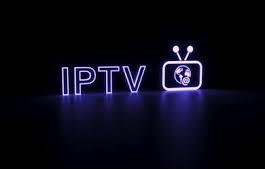Internet Protocol Television (IPTV) has become a prominent avenue for accessing diverse media content, offering viewers an array of channels and on-demand options. However, its legality within the United States has spurred debates, prompting scrutiny over copyright adherence, regulatory compliance, and ethical considerations. This article delves into the legal landscape of IPTV in the USA, emphasizing the importance of respecting laws and regulations governing this burgeoning industry.

Understanding IPTV
IPTV revolutionizes television broadcasting by delivering content over Internet Protocol (IP) networks, diverging from traditional cable or satellite methods. Content is encoded into IP packets, facilitating seamless transmission over the internet to viewers’ devices. IPTV services cater to diverse preferences with live channels, VOD libraries, and interactive features, all accessible with internet connectivity.
Regulatory Framework
The legal standing of IPTV in the USA operates within a multifaceted regulatory framework, encompassing federal, state, and local laws. Central to its legality are:
- Copyright Law: Upholding the exclusive rights of content creators and owners, copyright law safeguards against unauthorized distribution or reproduction of copyrighted material. IPTV operators and users must comply with these regulations to prevent infringement.
- Communications Act of 1934: Regulating telecommunications, this act establishes the Federal Communications Commission (FCC) as the primary authority. While IPTV falls under its purview, navigating internet-based content delivery poses unique challenges.
- Digital Millennium Copyright Act (DMCA): Addressing online copyright infringement, the DMCA mandates the removal of infringing content and outlines the liability of online service providers. IPTV operators must adhere to DMCA provisions to prevent piracy.
Challenges and Enforcement
Despite regulatory measures, challenges persist in enforcing IPTV legality:
- Piracy and Copyright Infringement: Unauthorized IPTV services risk infringing upon copyrighted content, inviting legal repercussions for operators and users engaged in unlawful distribution.
- Regulatory Ambiguity: The evolving nature of internet-based content complicates regulatory enforcement, necessitating ongoing adaptation and clarity in jurisdictional matters.

Implications and Considerations
The legality of IPTV in the USA carries significant implications:
- Legal Compliance: Upholding copyright law and regulatory requirements is paramount for IPTV operators and users to mitigate legal risks associated with infringement and piracy.
- Consumer Awareness: Users must exercise diligence in choosing reputable IPTV providers to ensure compliance with legal and ethical standards, thereby supporting a fair media ecosystem.
- Regulatory Oversight: Collaboration between stakeholders and regulatory bodies is essential for addressing emerging challenges and fostering a balanced regulatory approach conducive to industry growth.
Conclusion
In conclusion, the legality of IPTV in the USA is contingent upon adherence to copyright law, telecommunications regulations, and digital copyright enforcement mechanisms.
Upholding legal standards and respecting ethical considerations are fundamental for maintaining a fair and equitable IPTV ecosystem.
By navigating these complexities with diligence and compliance, stakeholders contribute to the integrity and sustainability of the legal framework governing IPTV in the USA.

